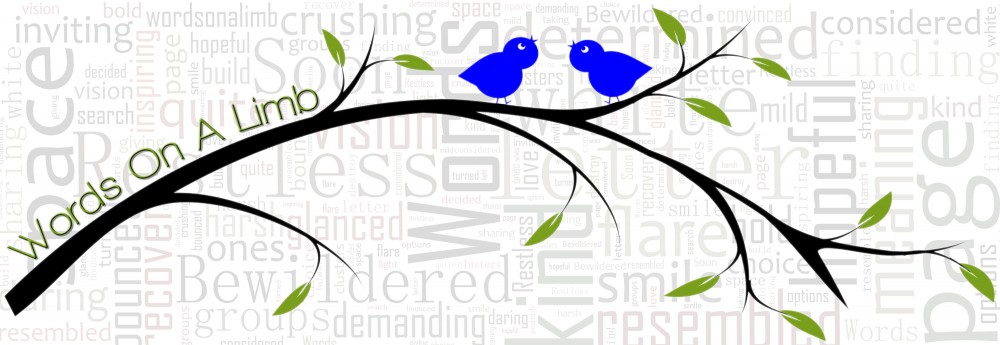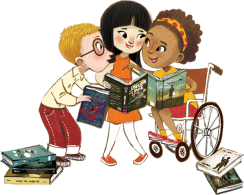 Whether it be in your classroom or your home, it’s not always easy to start difficult conversations or clarify confusing times for children. But the best conversations can begin with a story. They are a great way to expose children to different narratives and teach them about people outside of their immediate family. Having a diverse range of books can be a powerful tool in teaching children about tolerance and acceptance, all the while celebrating uniqueness and individuality. With that in mind, I’ve put together a list of books to help begin important discussions, not only about race, but also about inclusion, diversity and the differences that make us special.
Whether it be in your classroom or your home, it’s not always easy to start difficult conversations or clarify confusing times for children. But the best conversations can begin with a story. They are a great way to expose children to different narratives and teach them about people outside of their immediate family. Having a diverse range of books can be a powerful tool in teaching children about tolerance and acceptance, all the while celebrating uniqueness and individuality. With that in mind, I’ve put together a list of books to help begin important discussions, not only about race, but also about inclusion, diversity and the differences that make us special.
 Follow a group of children through a day in their school, where everyone is welcomed with open arms. A school where kids in patkas, hijabs, and yarmulkes play side-by-side with friends in baseball caps. A school where students grow and learn from each other’s traditions and the whole community gathers to celebrate the Lunar New Year.
Follow a group of children through a day in their school, where everyone is welcomed with open arms. A school where kids in patkas, hijabs, and yarmulkes play side-by-side with friends in baseball caps. A school where students grow and learn from each other’s traditions and the whole community gathers to celebrate the Lunar New Year.

Lily and Salma are best friends. They like doing all the same things, and they always eat lunch together. Lily eats peanut butter and Salma eats hummus-but what’s that between friends? It turns out, a lot. Before they know it, a food fight breaks out. Can Lily and Salma put aside their differences? Or will a sandwich come between them? The smallest things can pull us apart-until we learn that friendship is far more powerful than difference.

Big, small, curly, straight, loud, quiet, smooth, wrinkly. Lovely explores a world of differences that all add up to the same thing: we are all lovely! The simple, minimal text shows opposites: “black”—represented by a white woman in all black, “white”—a black woman with white hair, but includes them all under the umbrella of “lovely.”

 “Like the sun, I’m here to shine,” the rhyming text begins, and each page that follows offers an affirmation of all the strength, talent, and promise that young girls have within them. While praising their inherent strengths and virtues, the text also encourages girls to show kindness, to be fighters, and to accept their fellow female for who she is and embrace all the unique qualities that make her that way. And no matter what, to know that no matter what the world expects of her or tells her she must be, she needs only to remind herself of the truth: “I am enough.”
“Like the sun, I’m here to shine,” the rhyming text begins, and each page that follows offers an affirmation of all the strength, talent, and promise that young girls have within them. While praising their inherent strengths and virtues, the text also encourages girls to show kindness, to be fighters, and to accept their fellow female for who she is and embrace all the unique qualities that make her that way. And no matter what, to know that no matter what the world expects of her or tells her she must be, she needs only to remind herself of the truth: “I am enough.”

Skin Like Mine is a fun and creative way to address and celebrate diversity among young children. It emphasizes the importance of not only accepting others, but accepting and loving yourself. This story compares skin colors with foods instead of with other people. From brownies, cakes, and caramel, this book is a lighthearted way of breaking the barrier down when talking about different skin colors and loving the body we were given.
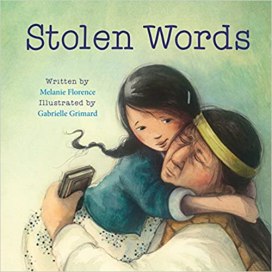 The story of the beautiful relationship between a little girl and her grandfather. When she asks her grandfather how to say something in his language – Cree – he admits that his language was stolen from him when he was a boy. The little girl then sets out to help her grandfather find his language again. This sensitive and warmly illustrated picture book explores the inter-generational impact of the residential school system that separated young Indigenous children from their families.
The story of the beautiful relationship between a little girl and her grandfather. When she asks her grandfather how to say something in his language – Cree – he admits that his language was stolen from him when he was a boy. The little girl then sets out to help her grandfather find his language again. This sensitive and warmly illustrated picture book explores the inter-generational impact of the residential school system that separated young Indigenous children from their families.
 Nate has a tough decision to make. Purim, a Jewish holiday, celebrated in part by the wearing of costumes, is coming up, and Nate has to decide between being an alien, his all-time favorite thing, or being a superhero like the rest of the boys in his class. He wants to fit in with his friends, but he really wants to be an alien. With the help of his two dads and his sister, he comes up with a costume that works for him. One of his dads shares the story of Queen Esther to help Nate see the value in being who you really are, even if it’s different from other people. Through the support of his family, Nate decides to be both brave, like a superhero, and original, like himself, to become a “super alien.” A really nice picture book about self-expression.
Nate has a tough decision to make. Purim, a Jewish holiday, celebrated in part by the wearing of costumes, is coming up, and Nate has to decide between being an alien, his all-time favorite thing, or being a superhero like the rest of the boys in his class. He wants to fit in with his friends, but he really wants to be an alien. With the help of his two dads and his sister, he comes up with a costume that works for him. One of his dads shares the story of Queen Esther to help Nate see the value in being who you really are, even if it’s different from other people. Through the support of his family, Nate decides to be both brave, like a superhero, and original, like himself, to become a “super alien.” A really nice picture book about self-expression.

Zuri’s hair has a mind of its own. It kinks, coils, and curls every which way. Zuri knows it’s beautiful. When Daddy steps in to style it for an extra special occasion, he has a lot to learn. But he LOVES his Zuri, and he’ll do anything to make her, and her hair happy. Tender and empowering, Hair Love is an ode to loving your natural hair and a celebration of daddies and daughters everywhere.
 Henry Brown doesn’t know how old he is. Nobody keeps records of slaves’ birthdays. All the time he dreams about freedom, but that dream seems farther away than ever when he is torn from his family and put to work in a warehouse. Henry grows up and marries, but he is again devastated when his family is sold at the slave market. Then one day, as he lifts a crate at the warehouse, he knows exactly what he must do: He will mail himself to the North. After an arduous journey in the crate, Henry finally has a birthday — his first day of freedom.
Henry Brown doesn’t know how old he is. Nobody keeps records of slaves’ birthdays. All the time he dreams about freedom, but that dream seems farther away than ever when he is torn from his family and put to work in a warehouse. Henry grows up and marries, but he is again devastated when his family is sold at the slave market. Then one day, as he lifts a crate at the warehouse, he knows exactly what he must do: He will mail himself to the North. After an arduous journey in the crate, Henry finally has a birthday — his first day of freedom.

Elliot lives in America, and Kailash lives in India. They are pen pals. By exchanging letters and pictures, they learn that they both love to climb trees, have pets, and go to school. Their worlds might look different, but they are actually similar. Same, same. But different!

A neighborhood cat observes the changes in German and Jewish families in its town during the period leading up to the Night of Broken Glass – that becomes the true beginning of the Holocaust. This cats-eye view introduces the Holocaust to children in a gentle way that can open discussion of this period.
 The new kid in school needs a new name! Or does she? Being the new kid in school is hard enough, but what about when nobody can pronounce your name? Having just moved from Korea, Unhei is anxious that American kids will like her. So instead of introducing herself on the first day of school, she tells the class that she will choose a name by the following week. Her new classmates are fascinated by this no-name girl and decide to help out by filling a glass jar with names for her to pick from. But while Unhei practices being a Suzy, Laura, or Amanda, one of her classmates comes to her neighborhood and discovers her real name and its special meaning. On the day of her name choosing, the name jar has mysteriously disappeared. Encouraged by her new friends, Unhei chooses her own Korean name and helps everyone pronounce it—Yoon-Hey.
The new kid in school needs a new name! Or does she? Being the new kid in school is hard enough, but what about when nobody can pronounce your name? Having just moved from Korea, Unhei is anxious that American kids will like her. So instead of introducing herself on the first day of school, she tells the class that she will choose a name by the following week. Her new classmates are fascinated by this no-name girl and decide to help out by filling a glass jar with names for her to pick from. But while Unhei practices being a Suzy, Laura, or Amanda, one of her classmates comes to her neighborhood and discovers her real name and its special meaning. On the day of her name choosing, the name jar has mysteriously disappeared. Encouraged by her new friends, Unhei chooses her own Korean name and helps everyone pronounce it—Yoon-Hey.
 These children and animals are all very different to each other. Some are big, some are small. Some are gentle, some are rough. Everyone is playful, but who’s the best at hiding? One thing’s certain: they all love a good bedtime story! The perfect picture book for little ones who are just beginning to make sense of their place in the world.
These children and animals are all very different to each other. Some are big, some are small. Some are gentle, some are rough. Everyone is playful, but who’s the best at hiding? One thing’s certain: they all love a good bedtime story! The perfect picture book for little ones who are just beginning to make sense of their place in the world.

A timely book about how it feels to be teased and taunted, and how each of us is sweet and lovely and delicious on the inside, no matter how we look.The boy is teased for looking different than the other kids. His skin is darker, his hair curlier. He tells his mother he wishes he could be more like everyone else. And she helps him to see how beautiful he really, truly is.

Once a skinny and weak child, Gino Bartali rose to become a Tour de France champion and one of cycling’s greatest stars. But all that seemed unimportant when his country came under the grip of a brutal dictator and entered World War II on the side of Nazi Germany. Bartali might have appeared a mere bystander to the harassment and hatred directed toward Italys Jewish people, but secretly he accepted a role in a dangerous plan to help them. Putting his own life at risk, Bartali used his speed and endurance on a bike to deliver documents Jewish people needed to escape harm. His inspiring story reveals how one person could make a difference against violence and prejudice during the time of the Holocaust.

By the door there is an umbrella. It is big. It is so big that when it starts to rain there is room for everyone underneath. It doesn’t matter if you are tall. Or plaid. Or hairy. It doesn’t matter how many legs you have. Don’t worry that there won’t be enough room under the umbrella. Because there will always be room. A timeless picture book about acceptance.

Every Sunday after church, CJ and his grandma ride the bus across town. But today, CJ wonders why they don’t own a car like his friend Colby. Why doesn’t he have an iPod like the boys on the bus? How come they always have to get off in the dirty part of town? Each question is met with an encouraging answer from grandma, who helps him see the beauty—and fun—in their routine and the world around them.
 Noah is different. He sees, hears, feels, and thinks in ways that other people don’t always understand, and he asks a lot of questions along the way. Noah loves science, especially the weather. His books usually provide him with the answers he needs, until one day, there’s one question they don’t answer—and that is where Noah’s windy adventure begins.This book celebrates the inquisitive nature of all children, including those on the autism spectrum, who cannot stop asking a question until an answer has been unearthed. The book contains a page of information for parents, caregivers, and educators about the importance of helping children feel good about their differences and know that being different is okay.
Noah is different. He sees, hears, feels, and thinks in ways that other people don’t always understand, and he asks a lot of questions along the way. Noah loves science, especially the weather. His books usually provide him with the answers he needs, until one day, there’s one question they don’t answer—and that is where Noah’s windy adventure begins.This book celebrates the inquisitive nature of all children, including those on the autism spectrum, who cannot stop asking a question until an answer has been unearthed. The book contains a page of information for parents, caregivers, and educators about the importance of helping children feel good about their differences and know that being different is okay.
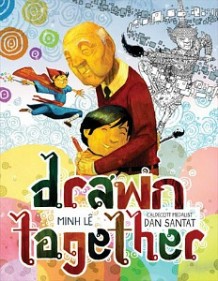 A young boy dreads his visits to his grandfather. They don’t share a language, so their time together is strained, awkward, and silent. Until they discover a shared love of drawing. Together, they find a common language through art. Drawn Together shows that meaningful relationships are possible even across communication barriers, and as their illustration styles start to blend together, it shows the connections they’ve made without words.
A young boy dreads his visits to his grandfather. They don’t share a language, so their time together is strained, awkward, and silent. Until they discover a shared love of drawing. Together, they find a common language through art. Drawn Together shows that meaningful relationships are possible even across communication barriers, and as their illustration styles start to blend together, it shows the connections they’ve made without words.
 The Family Book celebrates the love we feel for our families and all the different varieties they come in. Whether you have two moms or two dads, a big family or a small family, a clean family or a messy one, Todd Parr assures readers that no matter what kind of family you have, every family is special in its own unique way.
The Family Book celebrates the love we feel for our families and all the different varieties they come in. Whether you have two moms or two dads, a big family or a small family, a clean family or a messy one, Todd Parr assures readers that no matter what kind of family you have, every family is special in its own unique way.
 The journey starts on a sunny day in New York City and ends on a beautiful San Francisco night, with stops in Mexico City, Rio de Janeiro, London, Paris, Cape Town, Cairo, Beijing, and Tokyo. These friendly babies welcome us to their cities with delightful greetings in their original languages (with English translations) in a simple narration that will appeal to any global mini citizen.
The journey starts on a sunny day in New York City and ends on a beautiful San Francisco night, with stops in Mexico City, Rio de Janeiro, London, Paris, Cape Town, Cairo, Beijing, and Tokyo. These friendly babies welcome us to their cities with delightful greetings in their original languages (with English translations) in a simple narration that will appeal to any global mini citizen.
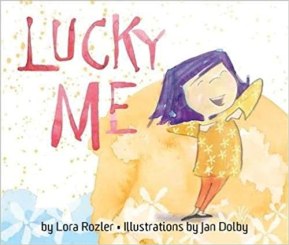 Lucky Me invites readers on a journey around the world to explore life’s simplest, yet often overlooked treasures. Pages come alive with a series of evocative, gratitude-filled messages, accompanied by Thank-yous translated into various languages, emphasizing global diversity.
Lucky Me invites readers on a journey around the world to explore life’s simplest, yet often overlooked treasures. Pages come alive with a series of evocative, gratitude-filled messages, accompanied by Thank-yous translated into various languages, emphasizing global diversity.
 Is there anything more splendid than a baby’s skin? Cocoa-brown, cinnamon, peaches and cream. As children grow, their clever skin does, too, enjoying hugs and tickles, protecting them inside and out, and making them one of a kind. Fran Manushkin’s rollicking text and Lauren Tobia’s delicious illustrations paint a breezy and irresistible picture of the human family — and how wonderful it is to be just who you are.
Is there anything more splendid than a baby’s skin? Cocoa-brown, cinnamon, peaches and cream. As children grow, their clever skin does, too, enjoying hugs and tickles, protecting them inside and out, and making them one of a kind. Fran Manushkin’s rollicking text and Lauren Tobia’s delicious illustrations paint a breezy and irresistible picture of the human family — and how wonderful it is to be just who you are.

Seven-year-old Lena is going to paint a picture of herself. She wants to use brown paint for her skin. But when she and her mother take a walk through the neighborhood, Lena learns that brown comes in many different shades. Through the eyes of a little girl who begins to see her familiar world in a new way, this book celebrates the differences and similarities that connect all people.
 With its heartfelt message and colorfully whimsical illustrations, “Our Class is a Family” is a book that will help build and strengthen that class community. Kids learn that their classroom is a place where it’s safe to be themselves, it’s okay to make mistakes, and it’s important to be a friend to others. When hearing this story being read aloud by their teacher, students are sure to feel like they are part of a special family.
With its heartfelt message and colorfully whimsical illustrations, “Our Class is a Family” is a book that will help build and strengthen that class community. Kids learn that their classroom is a place where it’s safe to be themselves, it’s okay to make mistakes, and it’s important to be a friend to others. When hearing this story being read aloud by their teacher, students are sure to feel like they are part of a special family.

Carl is an earthworm. He spends his days happily tunneling in the soil until a field mouse asks him a simple question that stops him short: “Why?” Carl’s quest takes him on an adventure to meet all the animals of the forest, each of whom seems to know exactly what they were put on this earth to do, unlike the curious Carl. But it’s not until the world around him has changed that Carl begins to realize everyone, no matter how small, makes a big difference just by being themselves.
 Today is Pet Club day. There will be cats and dogs and fish, but strictly no elephants are allowed. The Pet Club doesn’t understand that pets come in all shapes and sizes, just like friends. Now it is time for a boy and his tiny pet elephant to show them what it means to be a true friend. A sweet story of friendship, acceptance, and inclusion.
Today is Pet Club day. There will be cats and dogs and fish, but strictly no elephants are allowed. The Pet Club doesn’t understand that pets come in all shapes and sizes, just like friends. Now it is time for a boy and his tiny pet elephant to show them what it means to be a true friend. A sweet story of friendship, acceptance, and inclusion.
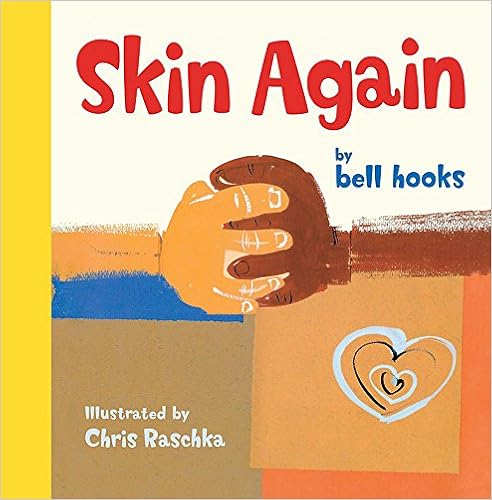
Celebrating all that makes us unique and different, Skin Again offers new ways to talk about race and identity. Race matters, but only so much–what’s most important is who we are on the inside. Looking beyond skin, going straight to the heart, we find in each other the treasures stored down deep. Learning to cherish those treasures, to be all we imagine ourselves to be, makes us free.
